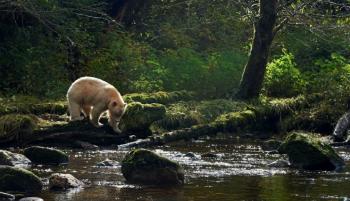Summary
Coast Funds, an Indigenous-led conservation finance organization, has announced the Renewable Energy for Remote Communities program, in conjunction with the province of British Columbia.
This initiative will launch in early 2020, and will see $7.9 million in new investments made towards transitioning remote communities from fossil fuel-dependent electrical grids to renewable energy sources.
The investment will be within 11 First Nations located in the Great Bear Rainforest and Haida Gwaii regions, and with Fraser Basin Council to lead investments in diesel-dependant communities in other regions of the province.
The initial call for proposals will launch in December 2019.
“New investments under this initiative will further strengthen well-being in remote coastal communities and First Nations’ efforts to protect and steward coastal ecosystems, reducing dependency on fossil fuels and the threat of oil spills in the Great Bear Rainforest and Haida Gwaii,” said Huux̱ Percy Crosby, chair of Coast Funds.
The following First Nations communities will be eligible under the Renewable Energy for Remote Communities program when it launches:
- Da’naxda’xw Awaetlala (New Vancouver)
- Dzawada’enuxw (Kingcome Inlet)
- Gitga’at (Hartley Bay)
- Gwawaeneuk (Hopetown)
- Haida (Haida Gwaii)
- Haíɫzaqv (Bella Bella)
- Kitasoo/Xai’xais (Klemtu)
- Kwikwasut’inux Haxwa’mis (Gilford Island)
- Nuxalk (Bella Coola)
- Ulkatcho (Anahim Lake)
- Wuikinuxv (Rivers Inlet)
It is anticipated that the initial call for proposals will be oversubscribed, reads a press release, and proposed projects will be ranked by a Joint Review Committee convened by the Ministry of Energy, Mining and Petroleum Resources based on
- volume of greenhouse gas displacement;
- cost-effectiveness;
- contribution to social, economic, and environmental resilience of communities;
- technical feasibility and risk mitigation;
- capital planning and long-term financial viability;
- project management;
- and degree of community engagement and partnerships.
Communities that are not dependent on fossil fuels to power their remote community electricity grids are not eligible for funding under this program.

